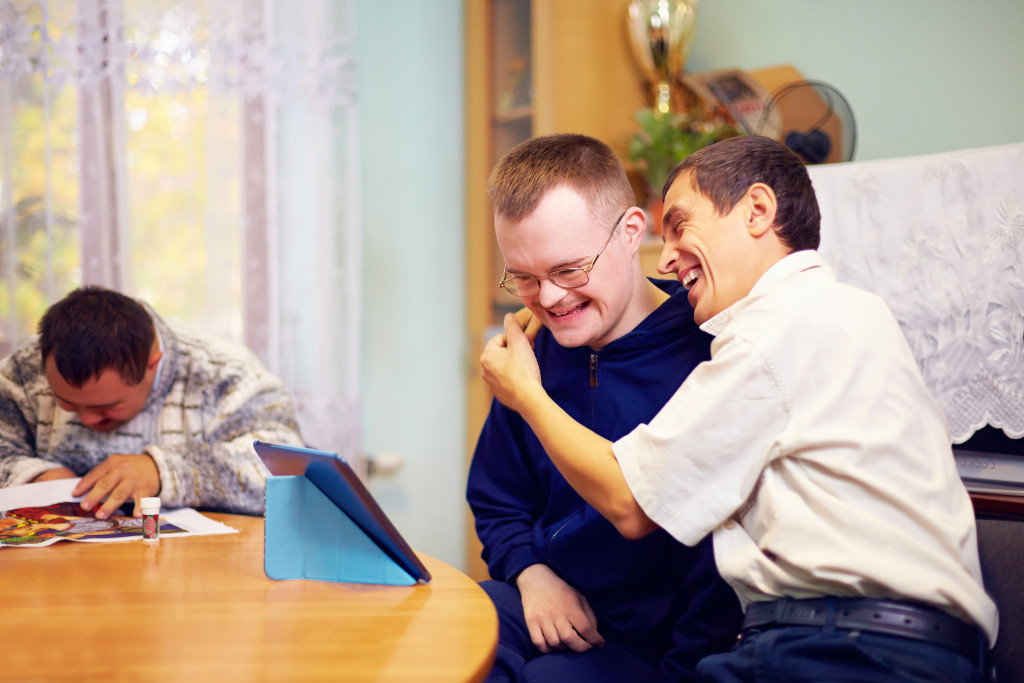- People with disabilities can live stimulating and fulfilling life by adopting healthy strategies.
- Exercise and fitness activities tailored to each disability can help strengthen essential muscle groups.
- A balanced diet with appropriate nutrient intake is needed to reduce the risks of diseases.
- Social engagement, community activities, and online communities provide emotional support and connection.
- Self-care practices such as meditation, stress management, seeking support, and using disability service providers are essential for emotional well-being.
Living with a disability can be challenging, but it is not a barrier to living a healthy and fulfilling life. Individuals with disabilities may face limitations in their daily activities, but with the right strategies and mindset, they can thrive and maintain a healthy lifestyle.
Healthy strategies are essential to achieve optimal physical and emotional well-being for people with disabilities. Regardless of their challenges, individuals with disabilities can still maintain a healthy and fulfilling lifestyle through strategies that can overcome their limitations.
This blog post will discuss the importance of adopting strategies to thrive despite limitations and specific strategies for nurturing physical well-being, social engagement, and community involvement.
Nurturing Physical Well-being
Physical well-being is crucial for living a healthy life, and it should be a priority for people with disabilities to maintain it. Developing a routine that promotes regular physical activity and healthy eating is essential to reduce the risks of related diseases and health problems.
Exercise and Fitness
Exercising with a disability requires careful consideration and consultation with a physician or physical therapist. Workout is vital to physical well-being as it can improve cardiovascular health, mental health, and overall functioning.
Activities such as range of motion exercises, strength training, and aerobic exercises can be tailored to accommodate different disabilities to develop and strengthen essential muscle groups.
Nutrition and Diet
A balanced diet is essential for individuals with disabilities, as they may have varying nutritional needs depending on the nature of their disability.
With careful consideration through consultation with a nutritionist or dietician. It is necessary to balance portion control, appropriate nutrient intake, and healthy food combinations to manage a healthy weight and prevent potential diseases.
Rest and Sleep
The need for rest and sleep should not be underestimated for individuals with disabilities. Rest and sleep are necessities to maintain good overall health and vitality.
People with disabilities may have specific sleeping requirements, so establishing a sleep routine and a sleep-supportive environment is critical.

Social Engagement and Community Involvement
Social connections and community involvement are crucial for individuals with disabilities as they can experience isolation and loneliness.
Engaging in social and community activities can provide an opportunity to develop relationships, access support, feel a sense of belonging, and give vital emotional and social support.
Participating in Community Activities
Community activities offer a platform for individuals with disabilities to participate actively in society and connect with others. Volunteering, sports, and other recreation events can help build self-confidence, self-awareness, and a sense of accomplishment.
Joining Online Communities
In the age of the Internet, online communities offer endless opportunities for individuals with disabilities to connect with peers who share similar experiences and interests.
Immersing in online groups centered around hobbies or interests can give emotional support and comfort and help foster a sense of belonging.
Supporting Emotional and Mental Health
Living with a disability can take a toll on emotional and mental health. It is essential to prioritize emotional and mental well-being by seeking positive experiences, social connections, and a fulfilling routine.
Self-Care and Stress Management
Self-care practices and stress-management techniques can boost emotional and physical well-being. Some suitable self-care practices include maintaining a balanced diet, staying active, practicing meditation or mindfulness, and getting enough rest.
Stress-management techniques such as deep breathing exercises, progressive muscle relaxation, and biofeedback can also help.
Seeking Support
Emotional support from friends, family, or support groups can significantly improve the quality of life for those with disabilities. Joining a support group can provide a sense of community and belonging.
Supportive friends and family can offer a listening ear, companionship, and encouragement. Counseling or therapy options are also available for managing grief, depression, anxiety, and other mental health issues.
Disability Service Providers
These providers specialize in supporting individuals with disabilities with specialized services, including medical care, assistive technology, transportation, and more. A disability service provider can also offer access to employment, education, and housing resources.
Once assigned to a disability services provider, individuals can receive a personalized service plan based on their unique needs to make it easier to thrive.

Living with a disability does not mean an individual must completely give up a healthy and fulfilling life. With the right strategies and mindset, thriving is possible despite perceived limitations.
Healthy living strategies tailored to meet an individual’s needs, abilities, and limitations are essential to healthy living, from nurturing physical well-being to social engagement and community involvement.
The key to thriving with constraints is a combination of determination, willingness to learn, and flexibility in adapting to necessary changes.

